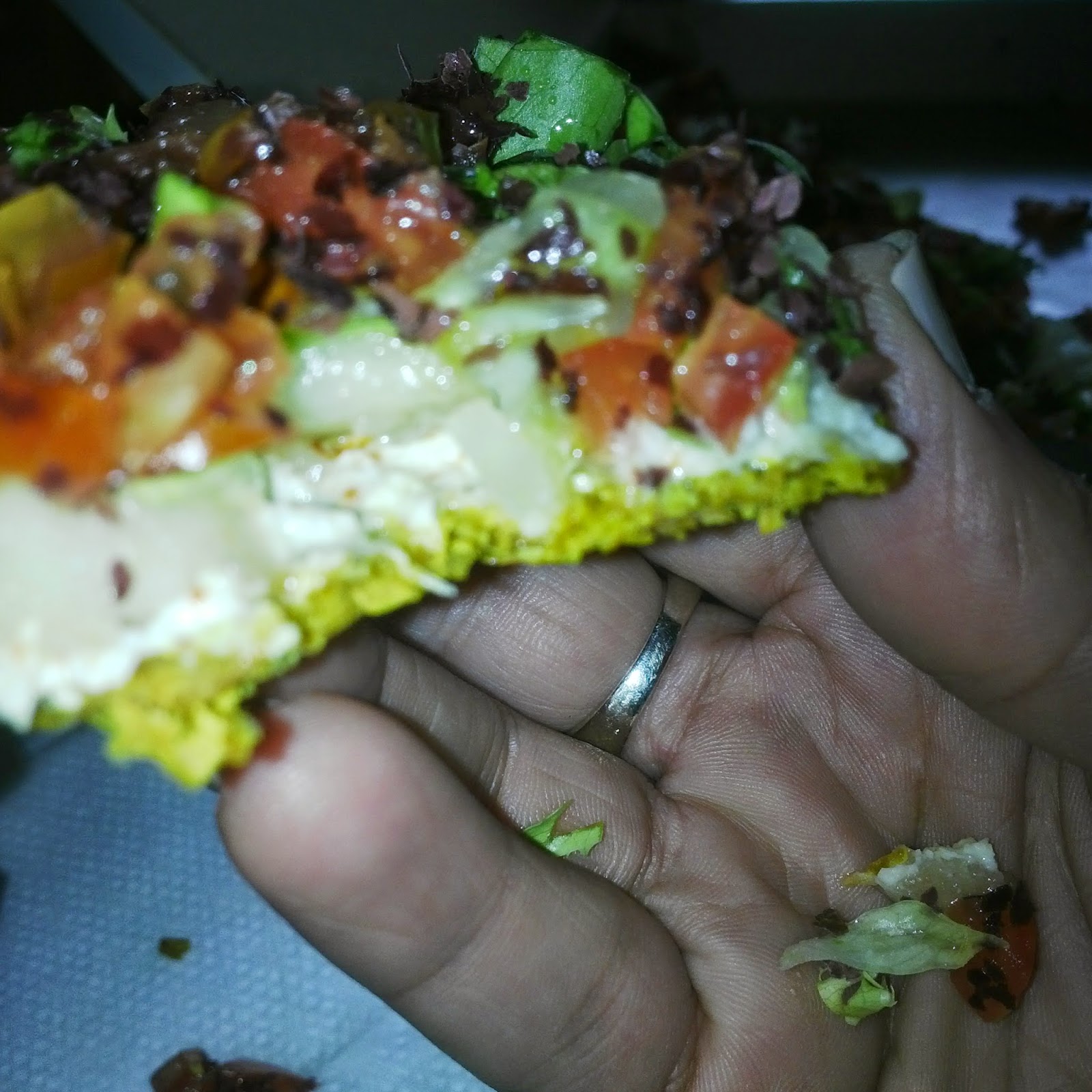So I’ve been trying to change my eating habits. Yes…I still eat meat, just less of it and no processed meats. That means I’ve put down, for now at least, Beloved Bacon and Awesome Chorizo sausage. I’m in discovery mode where beans (all of them) are concerned, and different, delicious ways to prepare them. I’ve made lentils and brown rice with portobello mushrooms and green peppers cooked with fresh herbs in coconut milk. I’ve made a wicked white bean mash which comes together so nicely with extra virgin olive oil, garlic, shallots, lemon juice and fresh parsley. I’ve made a sugar free vinaigrette with red wine vinegar, virgin olive oil, dried Italian herb mix and fresh garlic with a pinch of salt. I don’t like my salads naked. I hate them naked. And I’m on the look out for different and interesting and of course delicious ways to cook, prepare and eat the rainbow.
So when I saw an article in one of the dailies speaking about the benefits of raw foods, I took note. I also took a picture of the section where it listed some places here on the Rock where one could explore this not-quite-yet-mainstream food niche.
 |
| Zoom in for a list of Raw Food Eateries in Jamaica |
Imagine my glee when I googled a couple of these restaurants and found that they actually had an online presence that was current! Business places in Jamaica need to understand that without a current, valid on line presence they are possibly missing out on so many opportunities. It is a pleasure when a customer or potential customer can click and get location, opening hours, product listings, menus, prices and consumer feedback.
Side note: Last November I had to visit York, England for school. I invested quite a few hours researching on line where to to eat and drink in York (’cause my middle name is PLAN and because food is as important as school, right?) and complied a list complete with directions from my B&B, walking time, and the dish that I would eat at each location. I also knew what it would cost me. And so I, travelling as a single woman, first time visitor to York had a blast pub crawling, eating some awesomely delish food and sampling the local ales.
And so I looked up a couple of the places mentioned in the article and was intrigued by what I read about “Mi Hungry“. Their website described each dish and clearly stated cost. I mentioned it to a colleague of mine who is also trying to clean up her eating habits and she confirmed that she had eaten their food and recommended a couple of things to me. See why it’s good to chat and share and live out loud?
So today, I invited Miss World to accompany me there to have lunch after we shopped for groceries. She has quite an evolved palette and has a natural (inherited!) knack for blending and combining flavours so I knew she would be game and a worthy companion on this little adventure into the world of Raw Food.
So we reach on to Mi Hungry. It occupies a small corner in The Market Place, to the rear of the complex, but there are a few tables for whose who want to eat there.
 |
| Inside Mi Hungry |
I knew exactly what we were going to try: the burger and the pizza. I know there are vegan purists who resent comparisons of their food to more traditional fare. People get upset at “tofu roast” and ” meatless curried chicken” and “turkey bacon”. Calm down. More of us eat pizza and burger than not, and if your food is that good and that good for you, then you should want to share and what better way to share than to relate it to the familiar. So I ordered our selections with confidence: one half Pleaza and one Nyam burger to be shared between us. Here’s how Mi Hungry describes them:
Pleaza (Pizza): A savory crust of seeds and grains crisply dehydrated and covered with our not-cheese made from sunflower seeds, and topped with chopped onions, pineapple, tomatoes, sweet pepper, lettuce, olives, and hot pepper if you want.
Nyam Burger: Not-cheese burger, within 2 tasty buns made from walnuts, filled with our signature house tomato sauce, onion rings, tomato, lettuce, sweet pepper.
Here’s how the pizza looked:
Fresh toppings, thin crispy crust, a decent enough portion for 2 of us. It was beautiful, almost a work of art and you got the sense that someone took the time to layer and construct this by hand. The veggies were chopped up small, very neat…not at all junky and coarse. I’m happy to report that the taste was equally good. There was enough salt, a cheesy taste and enough pepper that supported an almost perfect blending of the flavours of these fresh toppings. The onion did not overpower anything, Praise Jah. The pineapple hovered underneath it all lending a delicate sweetness and her distinctive flavour that blended oh so well with the fresh tomato and sweet peppers. It was delicious.
Miss World declared the Pleaza her favourite. And while I thoroughly enjoyed it, I will most certainly get the Nyam Burger again! The “buns” were chewy and savoury and the inclusions fresh, delicious, cheesy and neatly bound together with their tomato sauce. Throughout both the Pleaza and and Nyam Burger, there was a very faint hint of fresh lime juice. Yum! Note: nothing is cooked and no flour or sugar are added.
The owner is the chef, a quiet, slender Rasta man, who was reluctant to chat, but very pleasant and gracious when I insisted on complimenting him in person. He makes the magic happen behind this mesh enclosed space.














